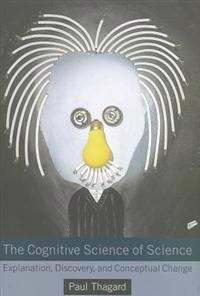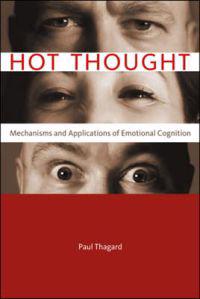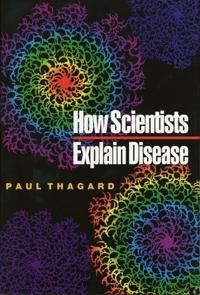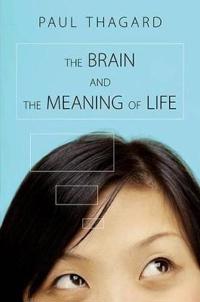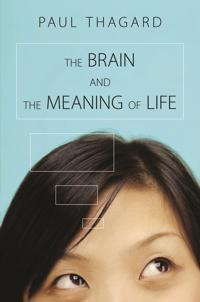The Cognitive Science of Science (Inbunden)
avPaul Thagard, Scott (COL) Findlay, Abninder (COL) Litt
ISBN: 9780262017282 - UTGIVEN: 2012-04Many disciplines, including philosophy, history, and sociology, have attempted to make sense of how science works. In this book, Paul Thagard examines scientific development from the interdisciplinary perspective of cognitive science. Cognitive science combines insights from researchers in many fiel[...]
The Cognitive Science of Science (Häftad)
avPaul Thagard
ISBN: 9780262525985 - UTGIVEN: 2014-02Many disciplines, including philosophy, history, and sociology, have attempted to make sense of how science works. In this book, Paul Thagard examines scientific development from the interdisciplinary perspective of cognitive science. Cognitive science combines insights from researchers in many fiel[...]
Mental Leaps: Analogy in Creative Thought (Övrig)
avKeith James Holyoak, Paul Thagard
ISBN: 9780262581448 - UTGIVEN: 1996-04-01Analogy -- recalling familiar past situations to deal with novel ones -- is a mental tool that everyone uses. Analogy can provide invaluable creative insights, but it can also lead to dangerous errors. In Mental Leaps two leading cognitive scientists show how analogy works and how it can be used mos[...]
Computational Philosophy of Science (Övrig)
avPaul Thagard
ISBN: 9780262700481 - UTGIVEN: 1993-04-05By applying research in artificial intelligence to problems in the philosophy of science, Paul Thagard develops an exciting new approach to the study of scientific reasoning. This approach uses computational ideas to shed light on how scientific theories are discovered, evaluated, and used in explan[...]
Coherence in Thought and Action (Övrig)
avPaul Thagard
ISBN: 9780262700924 - UTGIVEN: 2002-09-02This book is an essay on how people make sense of each other and the world they live in. Making sense is the activity of fitting something puzzling into a coherent pattern of mental representations that include concepts, beliefs, goals, and actions. Paul Thagard proposes a general theory of coherenc[...]
Mind (Pocket)
avPaul Thagard
ISBN: 9780262701099 - UTGIVEN: 2005-04Cognitive science approaches the study of mind and intelligence from an interdisciplinary perspective, working at the intersection of philosophy, psychology, artificial intelligence, neuroscience, linguistics, and anthropology. With Mind, Paul Thagard offers an introduction to this interdisciplinary[...]
Hot Thought (Pocket)
avPaul Thagard
ISBN: 9780262701242 - UTGIVEN: 2008-09Contrary to standard assumptions, reasoning is often an emotional process. Emotions can have good effects, as when a scientist gets excited about a line of research and pursues it successfully despite criticism. But emotions can also distort reasoning, as when a juror ignores evidence of guilt just [...]
How Scientists Explain Disease (Häftad)
avPaul Thagard
ISBN: 9780691050836 - UTGIVEN: 200007How do scientists develop new explanations of disease? How do those explanations become accepted as true? And how does medical diagnosis change when physicians are confronted with new scientific evidence? These are some of the questions that Paul Thagard pursues in this pathbreaking book that develo[...]
The Brain and the Meaning of Life (Inbunden)
avPaul Thagard
ISBN: 9780691142722 - UTGIVEN: 201001Why is life worth living? What makes actions right or wrong? What is reality and how do we know it? "The Brain and the Meaning of Life" draws on research in philosophy, psychology, and neuroscience to answer some of the most pressing questions about life's nature and value. Paul Thagard argues that [...]
The Brain and the Meaning of Life (Häftad)
avPaul Thagard
ISBN: 9780691154404 - UTGIVEN: 201202Why is life worth living? What makes actions right or wrong? What is reality and how do we know it? "The Brain and the Meaning of Life" draws on research in philosophy, psychology, and neuroscience to answer some of the most pressing questions about life's nature and value. Paul Thagard argues that [...]

